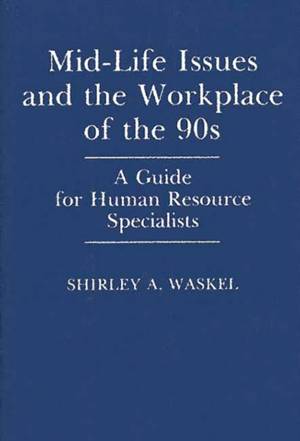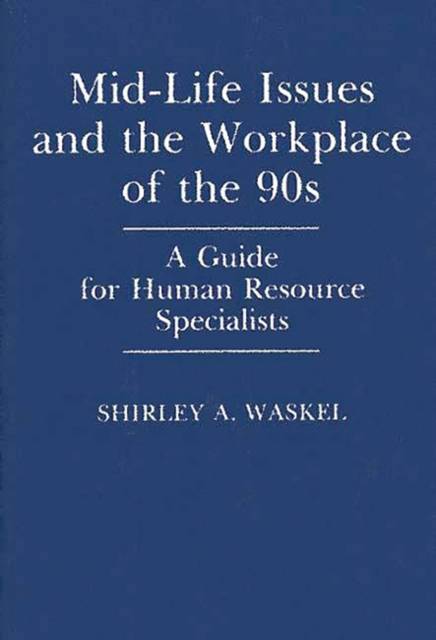
- Retrait gratuit dans votre magasin Club
- 7.000.000 titres dans notre catalogue
- Payer en toute sécurité
- Toujours un magasin près de chez vous
- Retrait gratuit dans votre magasin Club
- 7.000.000 titres dans notre catalogue
- Payer en toute sécurité
- Toujours un magasin près de chez vous
Mid-Life Issues and the Workplace of the 90s
A Guide for Human Resource Specialists
Shirley A Waskel
127,45 €
+ 254 points
Description
The median age of workers in the United States will reach 36 by the year 2000. The number of workers between the ages of 35 and 47 will increase by 38 percent, while those aged 48 to 53 will grow by a staggering 67 percent. This middle aging of the work force brings with it unique employee issues and personal mid-life stresses that affect work performance. Shirley A. Waskel suggests that as the number of workers aged 35 to 55 increases, human resource managers will have to deal increasingly with problems that once applied only to a minority. Her book addresses the need to retain mid-life workers, see them as assets, and provide avenues for them to enhance their own sense of self.
Mid-life as a developmental stage has come into its own in the past fifteen years. Waskel presents the mid-life individual as an adult who has brought along the behaviors, coping mechanisms, sense of self, and problems developed from infancy to the present day. Her study explains the problems that mid-life employees can bring to the workplace, the need to recognize how the worker produces, and the recognition that mid-life is a time when people begin to deal more intensely with issues left over from childhood. These childhood issues, added to workplace problems such as age, sex and race discrimination, sexual harassment, ineffective job placement, and lack of appreciation for the skills and expertise of the mid-life employee can all work against achieving a highly productive work force. Waskel discusses why no organization with these types of problems can expect to thrive and suggests programs (such as the Employee Assistance Program) and counseling groups as ways for human resource specialists to meet the challenge of mid-life employee difficulties. Mid-life Issues and the Workplace of the 90s is an indispensable guide for students and teachers of business, psychology, counseling, and sociology, as well as mid-life workers and human resource specialists.Spécifications
Parties prenantes
- Auteur(s) :
- Editeur:
Contenu
- Nombre de pages :
- 192
- Langue:
- Anglais
- Collection :
Caractéristiques
- EAN:
- 9780899306193
- Date de parution :
- 30-05-91
- Format:
- Livre relié
- Format numérique:
- Genaaid
- Dimensions :
- 156 mm x 234 mm
- Poids :
- 444 g







